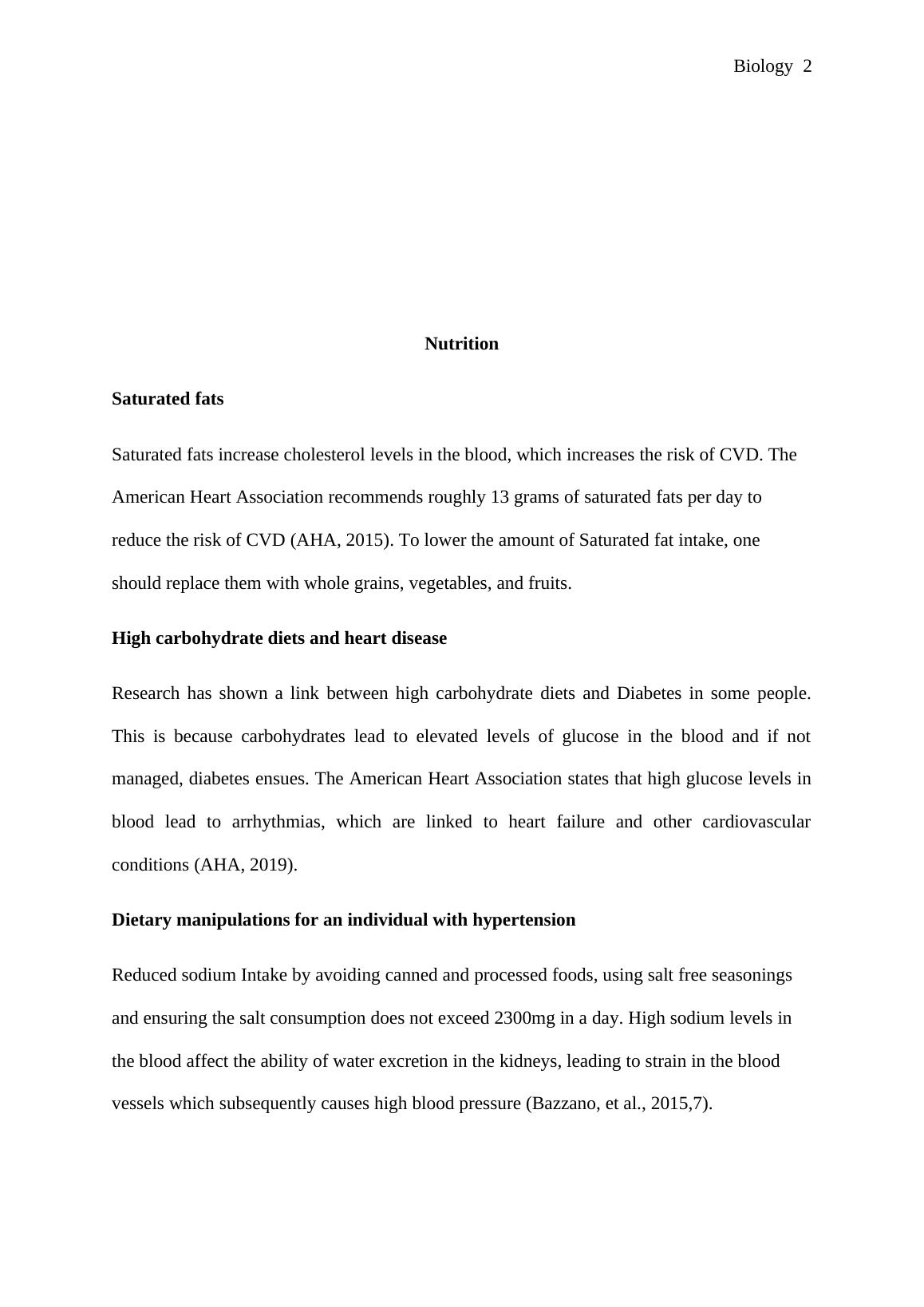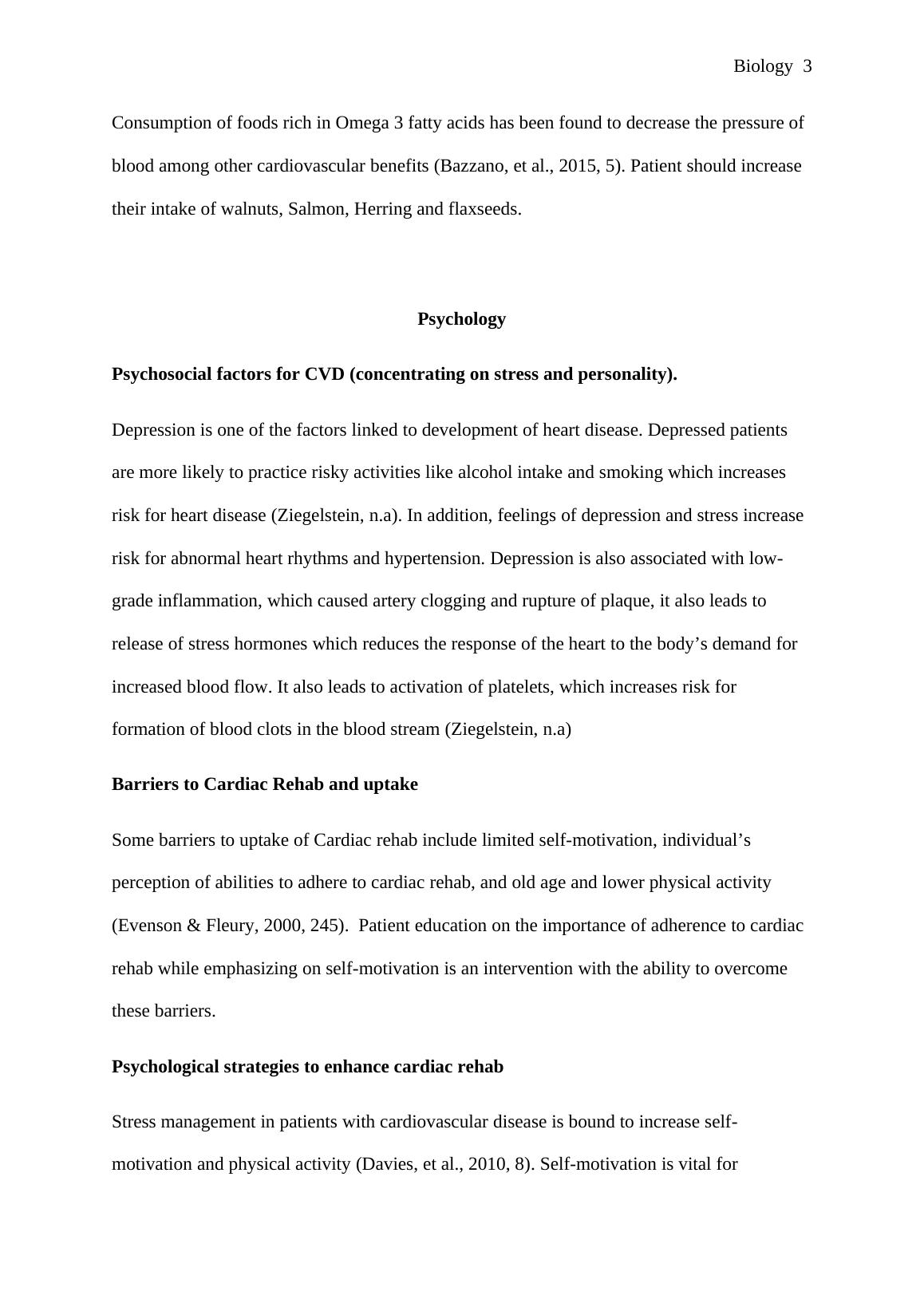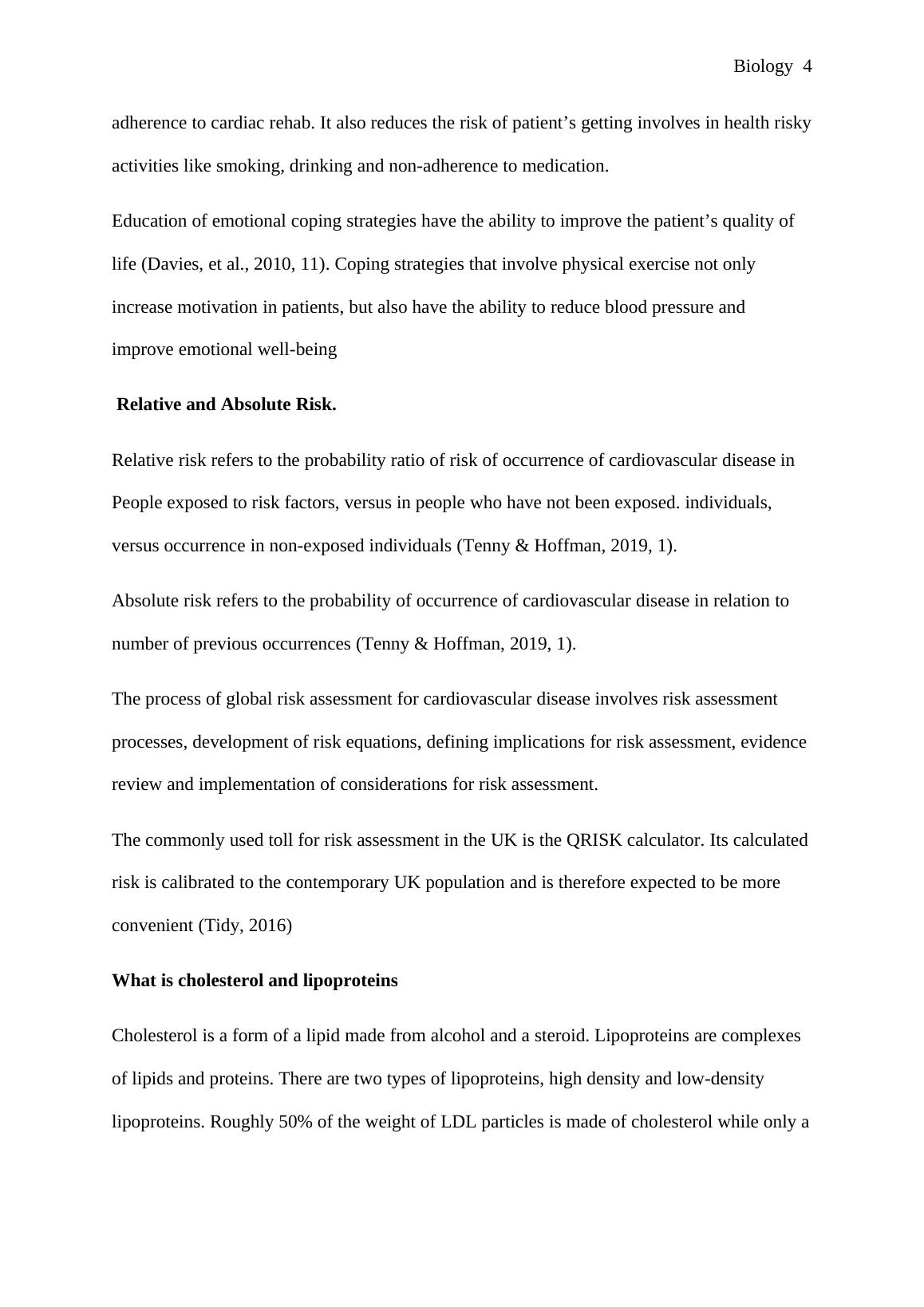Study Material on Biology and Psychology
This assignment involves answering questions related to nutrition and psychology, specifically focusing on topics such as saturated fat intake and cardiovascular health, high carbohydrate intake and its impact on cardiovascular health, dietary recommendations for individuals with hypertension, psychosocial factors as risk factors for cardiovascular disease, barriers to cardiac rehab adherence, and psychological strategies to enhance cardiac rehab.
Added on 2023-01-11
About This Document
Study Material on Biology and Psychology
This assignment involves answering questions related to nutrition and psychology, specifically focusing on topics such as saturated fat intake and cardiovascular health, high carbohydrate intake and its impact on cardiovascular health, dietary recommendations for individuals with hypertension, psychosocial factors as risk factors for cardiovascular disease, barriers to cardiac rehab adherence, and psychological strategies to enhance cardiac rehab.
Added on 2023-01-11
End of preview
Want to access all the pages? Upload your documents or become a member.




